Description
In Depth
ImmuneGenic is an advanced immune support supplement crafted by Alimentum Labs. This powerful product stands at the forefront of immune system enhancement through its targeted approach to gene expression. With a focus on specific immune-related genes, this formula intervenes in the complex interplay of genetics and lifestyle factors to influence immune responses. By modulating certain genes such as TNF, IL, IFN, HLA, CD4, CD8, TLR and Ig, ImmuneGenic contributes to a balanced immune system by fostering healthy inflammation responses and regulating immune cell production.
This comprehensive product doesn’t stop there; it also incorporates vital nutrients like vitamin D3, vitamin K2, essential minerals, amino acids, and herbal ingredients to support overall immune health. Additionally, ImmuneGenic aligns with the renowned AREDS studies, demonstrating benefits for eye and brain health as well. With its one of a kind formulation, it’s easy to see that ImmuneGenic is a crucial component in the pursuit of holistic immune wellness.
Key Features
- Vitamin D3 is crucial for the immune system, enhancing its response to infections, promoting antimicrobial activity through the production of cathelicidin, regulating inflammation, positively influencing autoimmune processes, and facilitating effective communication among immune cells for a well-coordinated defense.
- Vitamin K2 plays a vital role in the immune system by regulating calcium distribution to support normal bone health, while also contributing to a well-balanced immune response through its influence on cytokine modulation and immune cell functions.
- Zinc is essential for the immune system, promoting immune cell development, enhancing their function in responding to pathogens, and playing a pivotal role in maintaining a balanced immune response by regulating processes associated with inflammation, cytokines, and immune cell activity.
- Curcumin, derived from turmeric, offers immune system support by regulating the expression of Toll-like receptor genes, particularly TLR4, thereby modulating the inflammatory response to specific pathogens and exerting antioxidant properties that promote the activation of primary liver detoxification enzymes and contribute to immune health.
- Epigallocatechin Gallate (EGCG), found in green tea extract, provides immune system support by influencing antibody production, modulating toll like receptor (TLR) expression and activity, and demonstrating potential immunomodulatory effects that enhance the body’s ability to fight off pathogens and maintain a balanced immune response.
White Paper
The White Paper is your comprehensive guide to understanding this product. It details the ingredients, their functions, and how they work together to deliver results. Complete with usage guidance and safety information, it’s an invaluable resource for anyone seeking a thorough understanding of this formula.
Essential Ingredients
- Vitamin D3
- Vitamin K2
- Zinc
- Curcumin
- Green Tea Extract (EGCG)
Directions
Take 2 capsules daily, or as directed by your health care provider.
Warnings
Keep away from heat, sunlight, and out of the reach of children.
Quality Guarantee
cGMP facility
Vegetarian
Non-GMO
Gluten Free
Dairy Free
No Sugar
Frequently Asked Questions
Who should take ImmuneGenic?
ImmuneGenic is suitable for individuals looking to support their immune system, especially those concerned about autoimmune reactions, inflammation, and overall immune health. It is recommended for those seeking a comprehensive approach that focuses on genetic factors influencing immune functions. However, individuals who are pregnant, experiencing renal failure, undergoing organ transplant, or diabetic taking insulin should consult their practitioner before considering ImmuneGenic.
How should I take ImmuneGenic?
Take 2 capsules daily with or without food. Individual needs may differ, so it’s advisable to consult with your practitioner before making any adjustments to the prescribed doses or protocols.
Can I take ImmuneGenic with other supplements?
Yes, you can take ImmuneGenic with other supplements such as Immune μBiomic or MucosaGenic. However, if you have specific health concerns or are taking medications, it’s recommended to consult with your practitioner to ensure compatibility with your existing supplement regimen.
Can I take ImmuneGenic if I'm pregnant?
It’s advised to consult with your practitioner before taking ImmuneGenic if you are pregnant. Pregnancy involves unique health considerations, and certain ingredients may interact differently or have varying effects during this period. Consulting with a practitioner ensures that any potential risks or benefits are tailored to your individual circumstances, promoting the well-being of both you and your baby.
Why is Epigallocatechin Gallate (EGCG) important for fighting difficult and recurrent infections?
Epigallocatechin Gallate (EGCG) in ImmuneGenic is significant for combating difficult and recurrent infections due to its studied potential to modulate the immune system. EGCG, found in green tea, has demonstrated immunomodulatory effects, influencing antibody production and aiding in the fight against pathogens. Its ability to modulate toll-like receptor (TLR) expression and activity contributes to a strengthened immune response, making it a valuable component in addressing challenging and recurring infections.
How does ImmuneGenic reduce brain and systemic inflammation?
ImmuneGenic works to reduce brain and systemic inflammation through its potent combination of antioxidants and phytochemicals. This formula includes ingredients like resveratrol, curcumin, and vitamin E, which have been shown to have powerful anti-inflammatory properties. These compounds act as peroxyl radical scavengers, regulate enzymes, influence gene expression, and direct blood lipids, collectively contributing to a robust inflammation-reducing process. By providing comprehensive support to the body’s cellular activities, ImmuneGenic helps mitigate inflammation both in the brain and throughout the systemic pathways, offering impressive neuroprotective effects that safeguard against neurodegeneration and neuroinflammation.


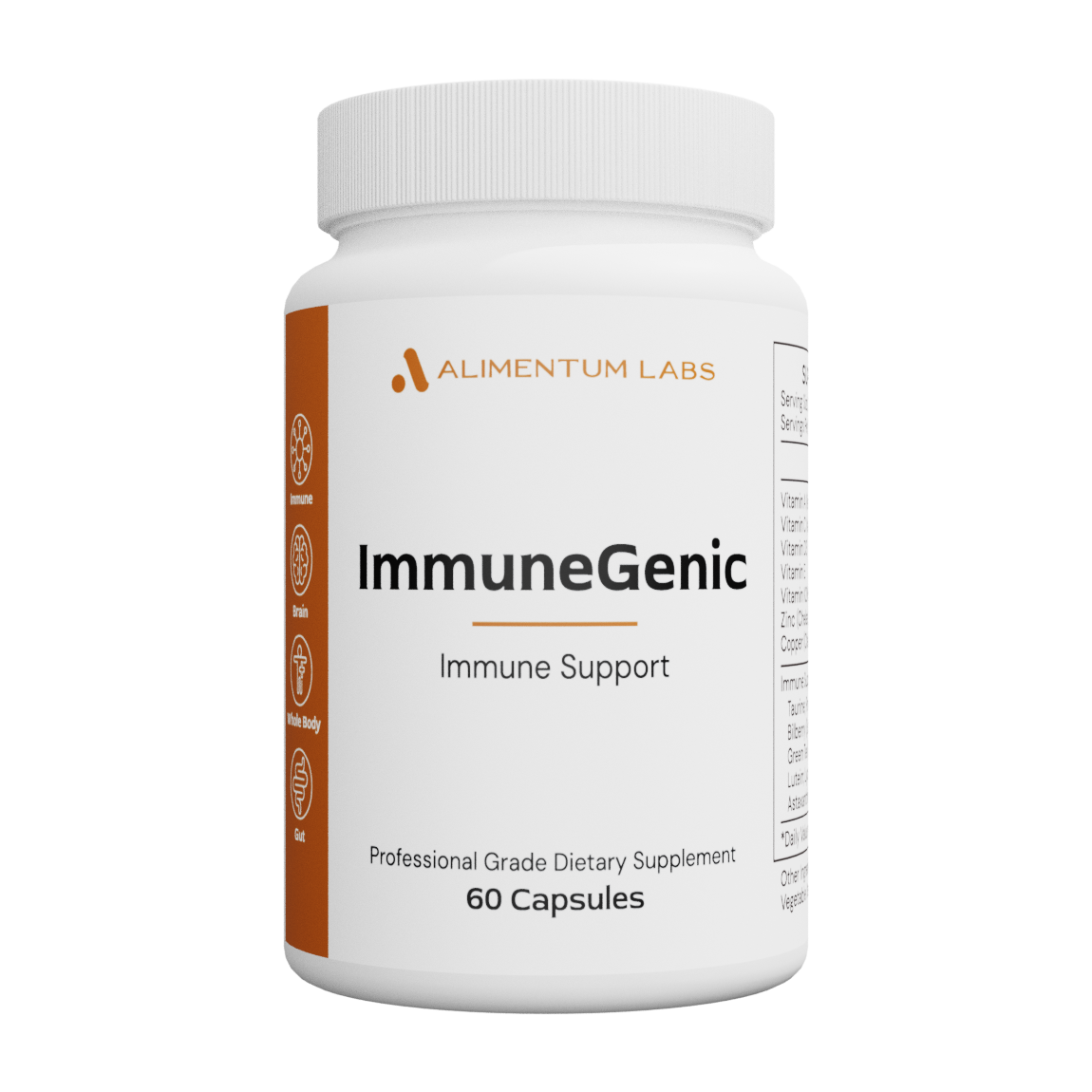
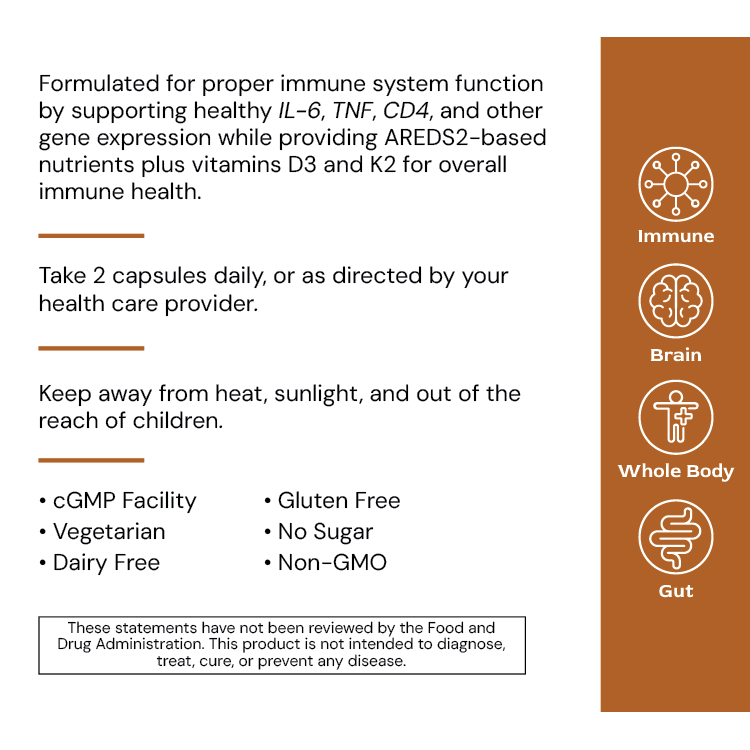
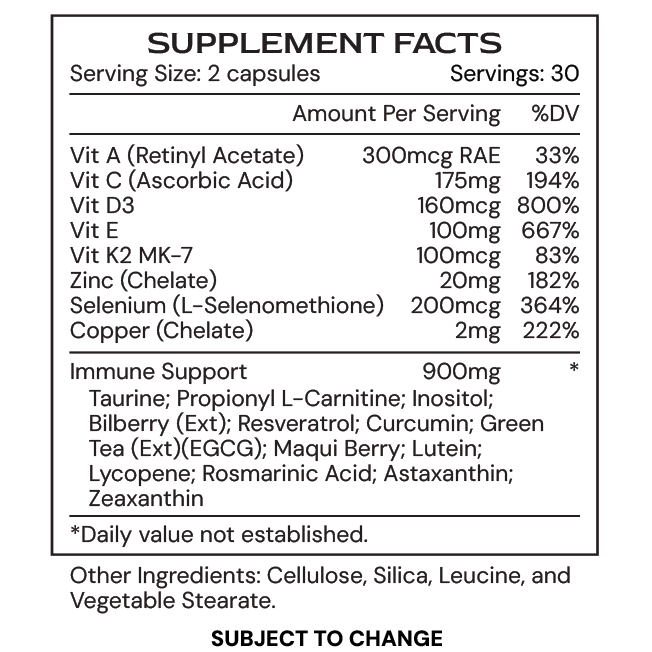
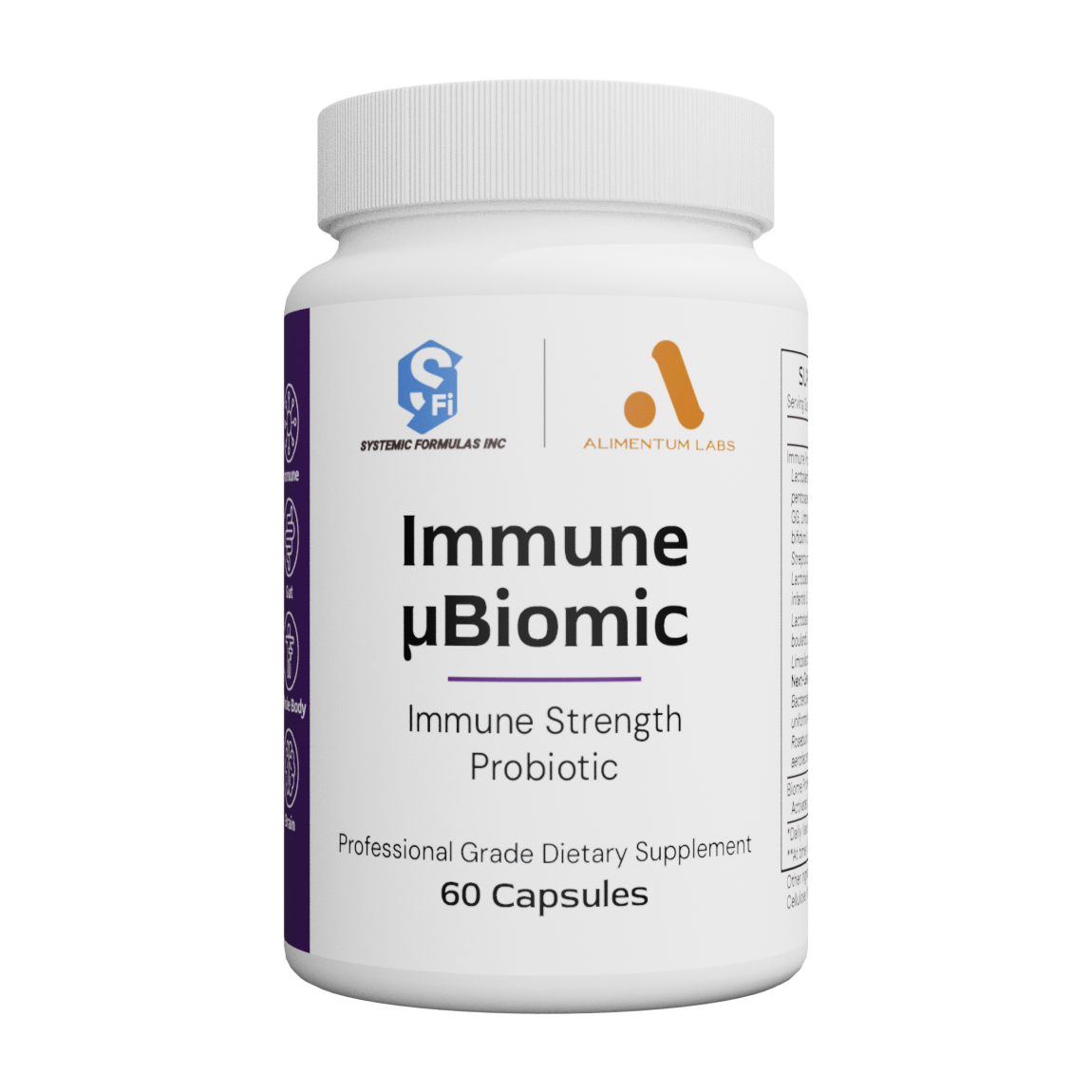
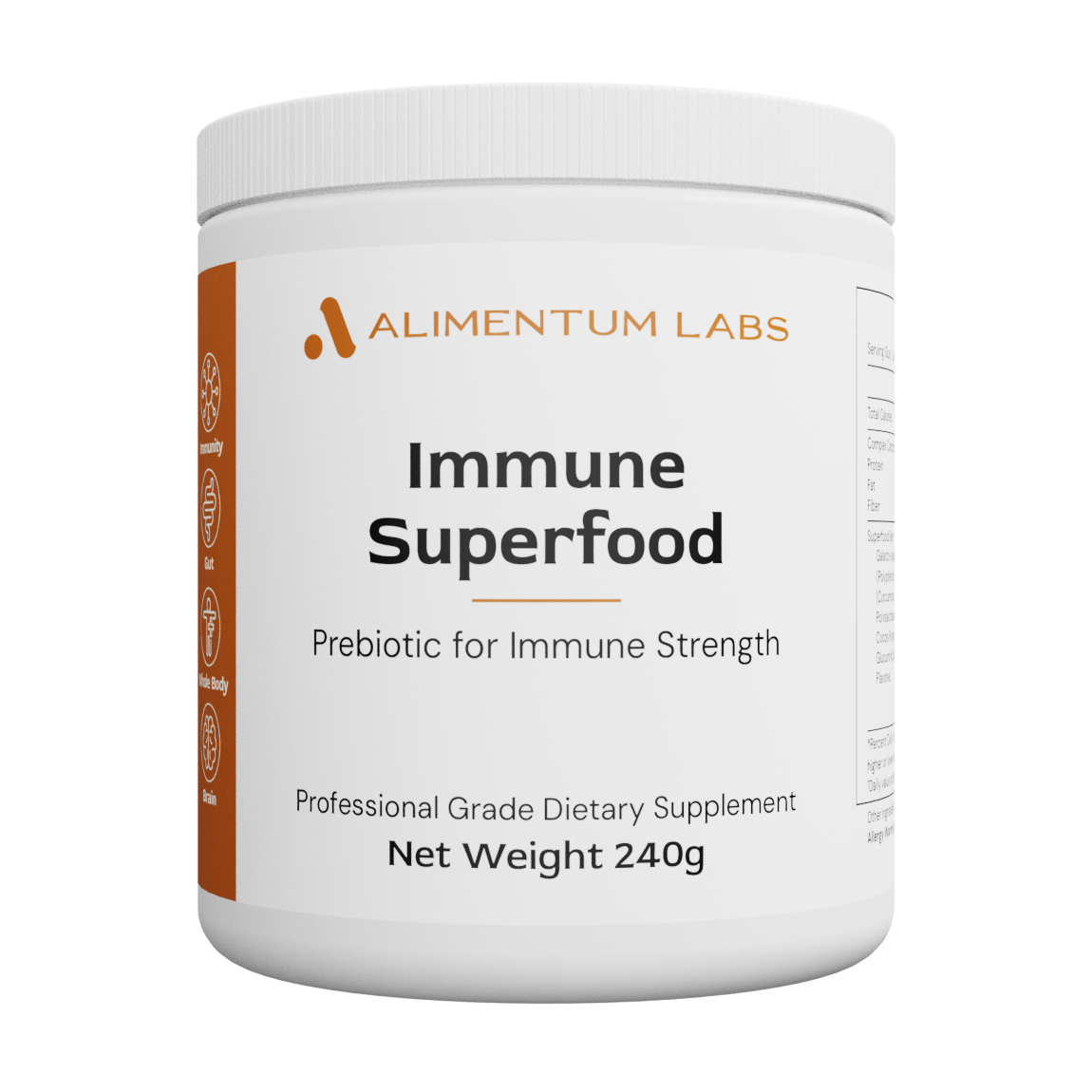
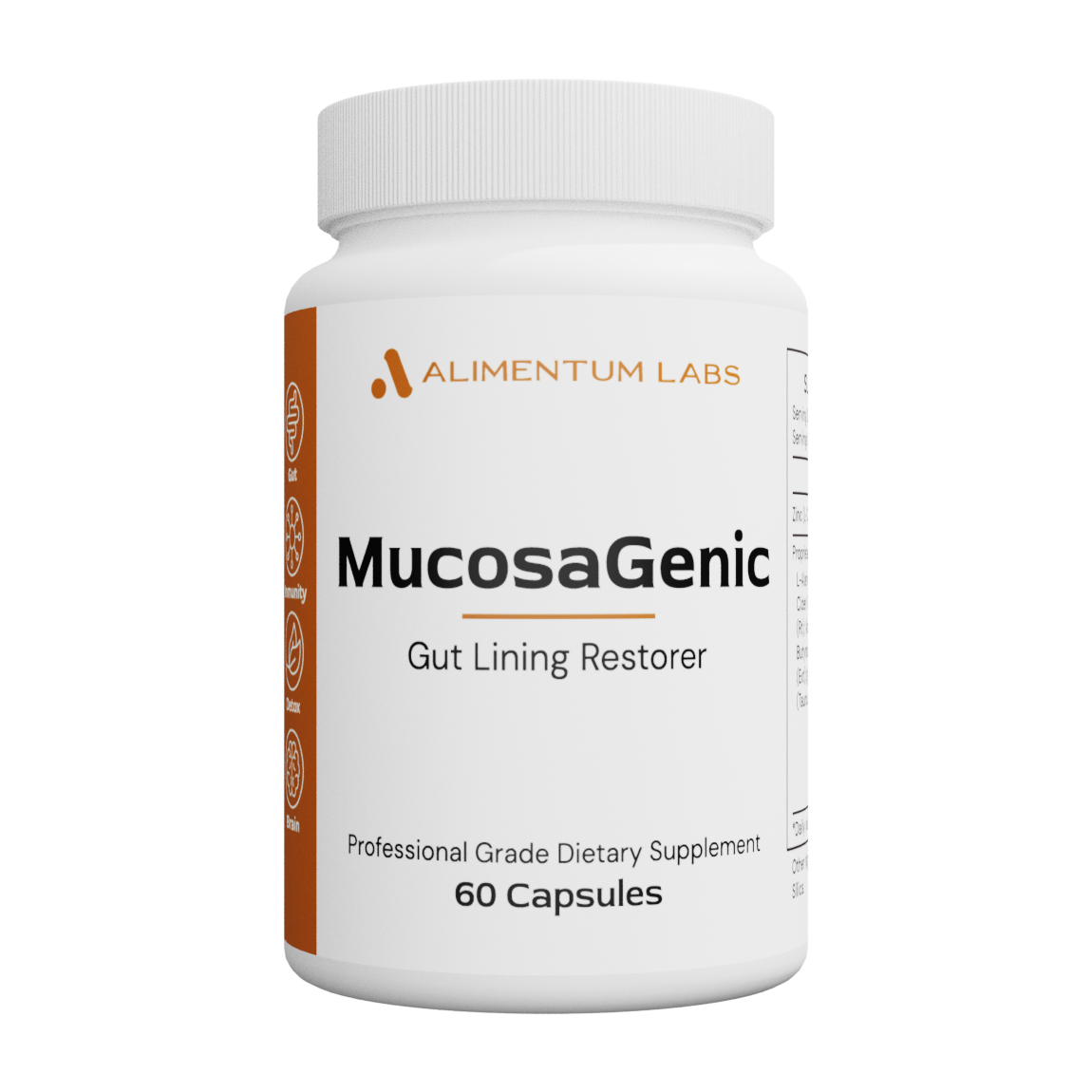
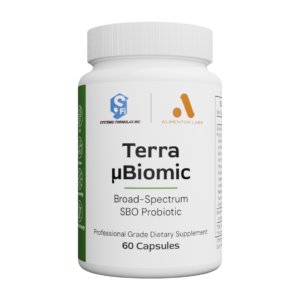
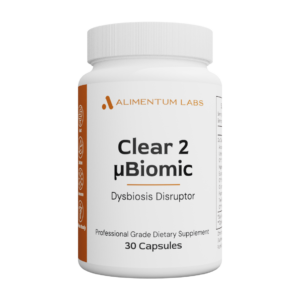
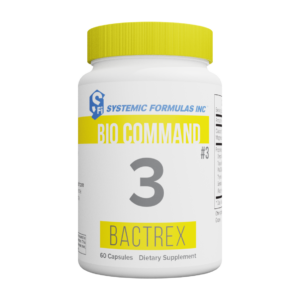
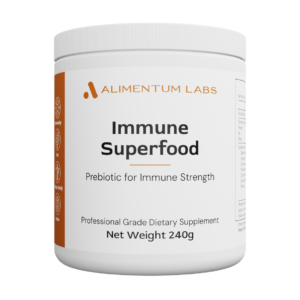

There are no reviews yet.